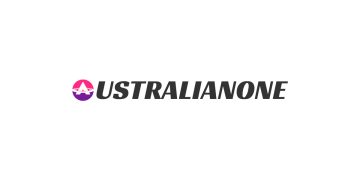The US will require countries to share data on “epidemic pathogens” in exchange for medical assistance. The draft document seen by The Guardian makes no mention of countries receiving benefits for sharing information, such as guaranteed access to drugs developed through research.

According to government documents, the United States wants countries to agree to share information about viruses that could cause large-scale disease outbreaks in exchange for restoring aid to address health problems such as HIV and malaria, The Guardian writes.
The Trump administration is looking to negotiate new bilateral aid agreements with dozens of countries after abruptly scrapping existing agreements earlier this year. These agreements are part of the new America First global health strategy announced in September.
The draft form, seen by The Guardian, will be used to draft memorandums of understanding with partner countries, proposing funding for diseases such as malaria, tuberculosis, HIV and polio, as well as for activities such as surveillance, laboratory systems and electronic health records.
This suggests that countries are expected to gradually take over funding for these sectors under the five-year agreement, writes The Guardian.
This in turn includes provisions requiring countries to share biological samples and genetic sequences of “epidemic pathogens” with the United States within days of identification.
The move could undermine global efforts to put into effect a new deal to fight the pandemic and ensure countries have equitable access to vaccines, treatments and diagnostics, lawyers said.
The memorandum says a full 25-year model sharing agreement is still being developed, but the current document does not mention countries receiving any specific benefits from sharing, such as guaranteed access to developed drugs.
Access to these benefits was key in negotiations over a pandemic agreement reached earlier this year that outlined how the world would respond to future outbreaks. Developing countries fear a repeat of the Covid-19 pandemic as they have difficulty accessing available vaccines and medicines.
The decision on this element of the pandemic response – the Pathogen Access and Benefit Sharing (Pabs) system – has been deferred for further negotiations. This system will be an appendix to the main agreement but must take effect before the agreement is signed.
The draft memorandum and accompanying technical guidance also propose that countries will be required to recognize drug approvals by US regulators as consistent with domestic regulatory requirements, especially in the case of “large domestic markets or other strategic reasons”.
News of the draft US memorandum of understanding comes as national and civil society representatives gather in Geneva to negotiate the proposed Pabs system, The Guardian further noted.
“In our view, these bilateral agreements will weaken the multilateral system,” said Michelle Kazatchkine, spokesperson for the Independent Commission on Pandemic Preparedness and Response. “They will bypass the World Health Organization and the foundations of solidarity and equality we are trying to create here. This model does not guarantee access to countermeasures and ensure one country's commercial dominance. It threatens health, data and security security. Finally, national sovereignty.”
In a statement, the Pandemic Action Network said: “We want to emphasize the importance of this multilateral process, and investing in a system that can endure, in bringing countries together. The origins of these negotiations have led us here: every country fighting for itself has become a race to the bottom, and those who have suffered are the most vulnerable.”















